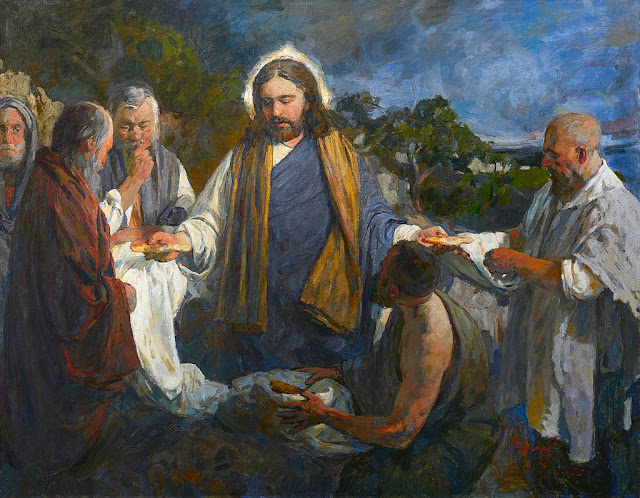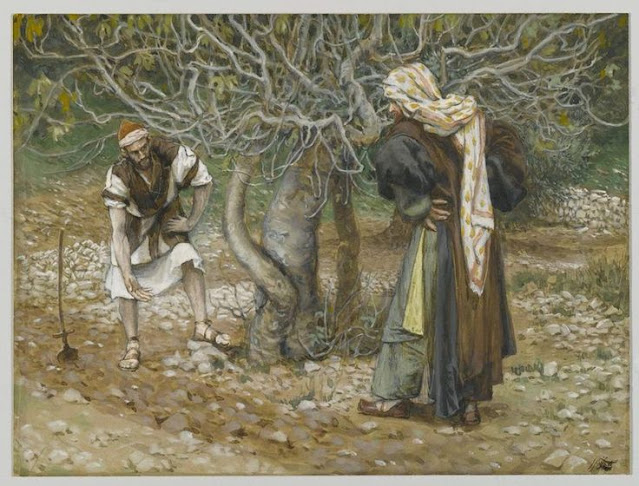The Scandal of the Gospel (preaching resource for 7/28—8/25/24, Pentecost 10—14)

This post exegetes John chapter 6, providing context for the RCL Gospel readings on 7/28 —8 /25/24 (Pentecost 10—14). This exegesis draws on commentary from Warren Wiersbe ("The Bible Exposition Commentary"), Michael Card ("The Parable of Joy") and F.F. Bruce ("The Gospel of John"). "Bread of Life" by Mironov (public domain via Wikimedia Commons) Introduction John 6 addresses a significant turning point in Jesus’ ministry. Here he ministers to the crowd and his disciples—granting both grace and truth; food and teaching—revealing through both more of his true identity. The response is a reminder of the scandal of the gospel, the hardness of the human heart, and the overwhelming grace of our Savior. The events of this chapter occur near the third Passover of Jesus’ ministry. Time is short. Jesus’ death is only a year away. Jesus ‘ramps up’ his work and teaching. Jesus feeds the crowd John 6:1-13 The words “some time after this" clue us in th...

_o_San_Paolo.jpg)



